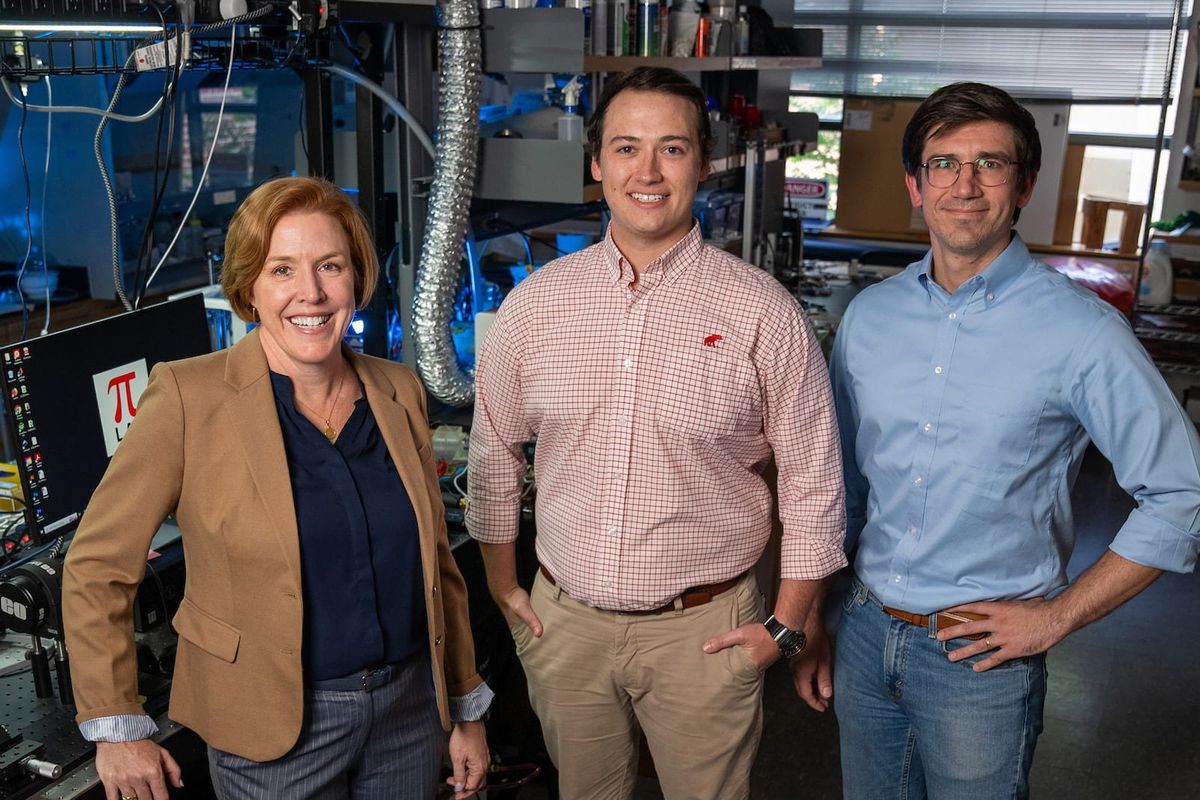Rice University professor earns $550k NSF award for wearable imaging tech
science supported
Another Houston scientist has won one of the highly competitive National Science Foundation (NSF) CAREER Awards.
Lei Li, an assistant professor of electrical and computer engineering at Rice University, has received a $550,000, five-year grant to develop wearable, hospital-grade medical imaging technology capable of visualizing deep tissue function in real-time, according to the NSF. The CAREER grants are given to "early career faculty members who demonstrate the potential to serve as academic models and leaders in research and education."
“This is about giving people access to powerful diagnostic tools that were once confined to hospitals,” Li said in a news release from Rice. “If we can make imaging affordable, wearable and continuous, we can catch disease earlier and treat it more effectively.”
Li’s research focuses on photoacoustic imaging, which merges light and sound to produce high-resolution images of structures deep inside the body. It relies on pulses of laser light that are absorbed by tissue, leading to a rapid temperature rise. During this process, the heat causes the tissue to expand by a fraction, generating ultrasound waves that travel back to the surface and are detected and converted into an image. The process is known to yield more detailed images without dyes or contrast agents used in some traditional ultrasounds.
However, current photoacoustic systems tend to use a variety of sensors, making them bulky, expensive and impractical. Li and his team are taking a different approach.
Instead of using hundreds of separate sensors, Li and his researchers are developing a method that allows a single sensor to capture the same information via a specially designed encoder. The encoder assigns a unique spatiotemporal signature to each incoming sound wave. A reconstruction algorithm then interprets and decodes the signals.
These advances have the potential to lower the size, cost and power consumption of imaging systems. The researchers believe the device could be used in telemedicine, remote diagnostics and real-time disease monitoring. Li’s lab will also collaborate with clinicians to explore how the miniaturized technology could help monitor cancer treatment and other conditions.
“Reducing the number of detection channels from hundreds to one could shrink these devices from bench-top systems into compact, energy-efficient wearables,” Li said in the release. “That opens the door to continuous health monitoring in daily life—not just in hospitals.”
Amanda Marciel, the William Marsh Rice Trustee Chair of chemical and biomolecular engineering and an assistant professor at Rice, received an NSF CAREER Award last year. Read more here.
- 4 Houston innovators join prestigious group of inventors as senior members ›
- Houston chemist lands $2M NIH grant for cancer treatment research ›
- Rice University's edtech company receives $90M to lead NSF research hub ›
- Rice University spinout lands $500K NSF grant to boost chip sustainability ›
- Rice psychologist earns NSF CAREER award to study digital distractions - InnovationMap ›

 Marcia O'Malley (from left), Barclay Jumet and Daniel Preston developed a wearable textile device that can deliver complex haptic cues in real time to users on the go. Photo by Brandon Martin/Rice University
Marcia O'Malley (from left), Barclay Jumet and Daniel Preston developed a wearable textile device that can deliver complex haptic cues in real time to users on the go. Photo by Brandon Martin/Rice University


